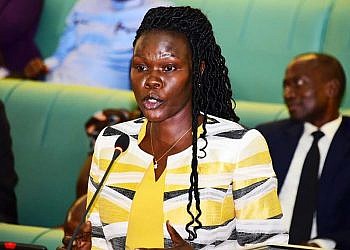The Forum for Democratic Change (FDC) has criticized Parliament for prioritizing the enactment of the Lumu Bill and the election of the Leader of Opposition, ignoring more pressing national issues.
FDC President Patrick Amuriat expressed these concerns while presenting the party’s views on the Administration of Parliament Amendment Bill 2024 to the Legal and Parliamentary Affairs Committee.
Amuriat specifically criticized the focus on Richard Lumu’s (Mityana South) proposal to have the Leader of Opposition elected by MPs, stating that Parliament was advancing this bill at “supersonic speed” while other urgent matters were being neglected.
“Ensure that any reforms prioritize the interests of Ugandans. Parliament after Parliament has failed our democracy by not addressing the critical issues facing our country,” said Amuriat.
Amuriat accused Stephen Baka (Bukooli North), Chairperson of the Legal Committee, of favoritism, claiming that the Lumu Bill was fast-tracked while other Private Members’ Bills remain stalled. He questioned the speed of the bill’s processing, calling it suspicious.
The FDC opposes the proposed amendment, arguing it is intended to weaken opposition parties and limit their space to operate effectively in Parliament.
Amuriat warned that restricting the opposition would push dissenting voices toward more radical measures, which could destabilize the country.
“The more you shrink the space for the Opposition, the more you push us to seek alternatives. This is dangerous for both democracy and national stability,” Amuriat added.
Amuriat also questioned Lumu’s authority to speak for the opposition, asserting that internal opposition matters should not be resolved through legislation but handled administratively.
He noted that denying the largest opposition party the right to elect the Leader of Opposition would be undemocratic and could give the ruling party a tool to silence strong opposition voices.
The FDC pointed out that the ruling party appoints its Chief Whip and Prime Minister without outside interference, questioning why the opposition is subjected to different rules.
Amuriat concluded by questioning the timing and motives behind the Lumu Bill, suggesting it may be driven by personal or political interests rather than genuine reform.
By Parliament Watch







































